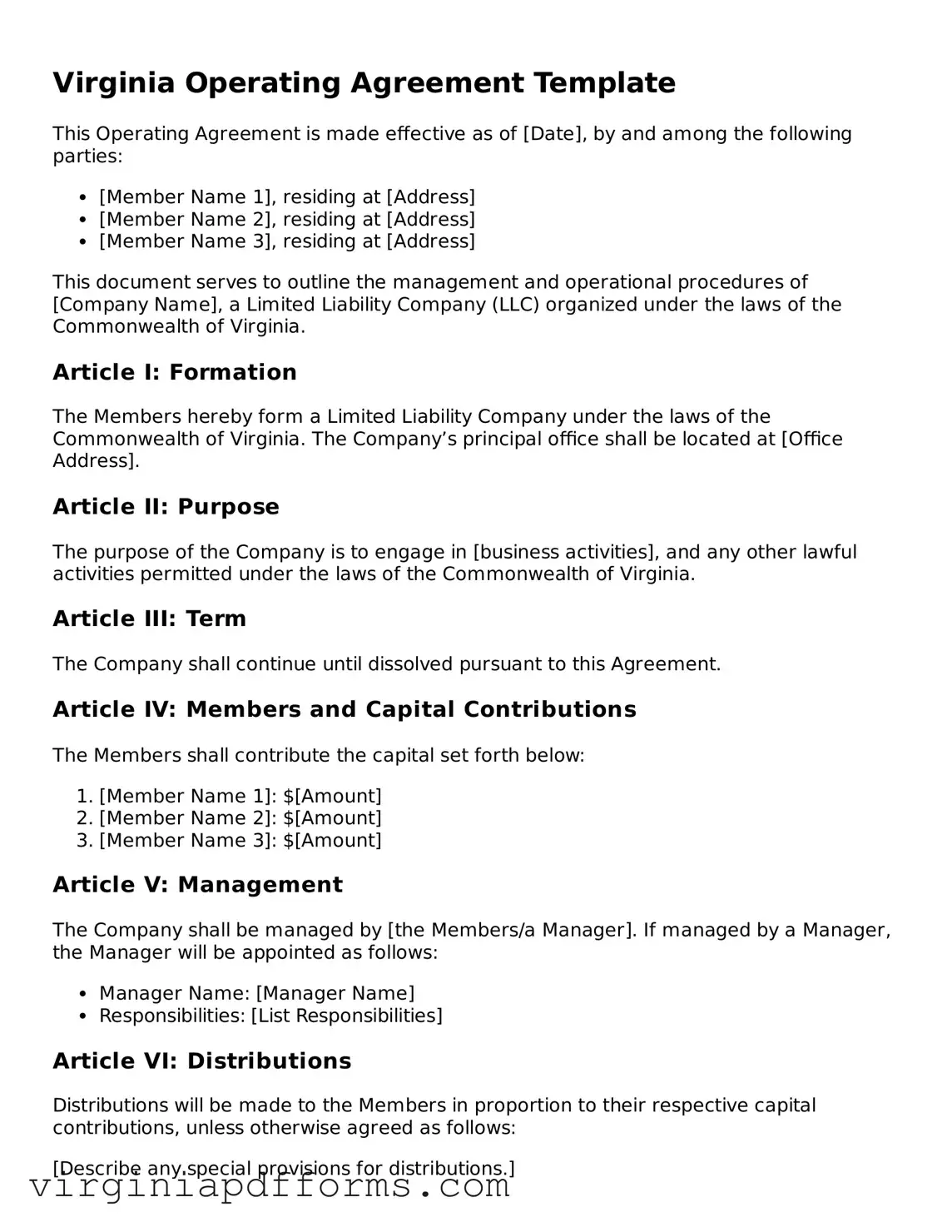Attorney-Approved Virginia Operating Agreement Document
The Virginia Operating Agreement form is a legal document that outlines the management structure and operational procedures of a limited liability company (LLC) in Virginia. This form serves as a foundational agreement among the members, detailing their rights, responsibilities, and the distribution of profits and losses. By establishing clear guidelines, the operating agreement helps prevent disputes and ensures smooth business operations.
Access My Document Now

Attorney-Approved Virginia Operating Agreement Document
Access My Document Now

Access My Document Now
or
Free Operating Agreement File
Need this form wrapped up fast?
Finish Operating Agreement online — edit, save, download without effort.